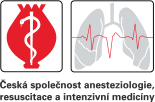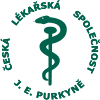Anest. intenziv. Med. 2009;20(3):158-164
Delirium during the postoperative period and in the intensive medicineIntesive Care Medicine - Review Article
- 1 Centrum kardiovaskulární a transplantační chirurgie, Brno
- 2 Klinika anesteziologie, resuscitace a intenzivní medicíny, Fakultní nemocnice Brno
The review article addresses the problem of delirium in intensive care, its types and definition as well as possibilities of differential diagnostics. Authors describe both non-pharmacologic and pharmacologic measures of prevention and treatment of delirium.
Keywords: delirium; intensive care; diagnostics; treatment
Received: November 7, 2008; Accepted: March 11, 2009; Published: June 1, 2009 Show citation
References
- American Psychiatric Association Diagnostic and Statistical Manual of Mental Disorders. Fourth Edition (DSM-IV). Washington: APA 1994.
- American Psychiatric Association: Practice guideline for the treatment of patients with delirium. Am. J. Psychiatry, 1999, 156, 5 suppl, p. 1-20.
- Bucerius, J., Gummert, J. F. Predictors of delirium after cardiac surgery: effect of beating heart surgery. J. Thor. Cardiovas. Surg., 2004, 127, p. 57-64.
 Go to original source...
Go to original source...  Go to PubMed...
Go to PubMed... - Franco, K., Litaker, D. The cost of delirium in the surgical patient. Psychosomatics, 2001, 42, p. 68-73.
 Go to original source...
Go to original source...  Go to PubMed...
Go to PubMed... - Liptzin, B., Levkoff, S. E. An empirical study of delirium subtypes. Brit. J. Psych., 1992;161:843-5.
 Go to original source...
Go to original source...  Go to PubMed...
Go to PubMed... - Ely, E. W., Truman, B., Shintani, A., Thomason, J. W. W., Wheeler, A. P., Gordon, S. Monitoring sedation status over time in ICU patients: the reliability and validity of the Richmond Agitation Sedation Scale (RASS). JAMA, 2003, 289, p. 2983-2991.
 Go to original source...
Go to original source...  Go to PubMed...
Go to PubMed... - Bergeron, N., Dubois, M. J., Dumont, M., Dial, S., Skrobik, Y. Intensive Care Delirium Screening Checklist: evaluation of a new screening tool. Intensive Care Med., 2001, 27, 5, p. 859-864.
 Go to original source...
Go to original source...  Go to PubMed...
Go to PubMed... - Karlsson, I. Drugs that induce delirium. Dementia and Geriatric Cognitive Disorders, 1999, 10, p. 412-415.
 Go to original source...
Go to original source...  Go to PubMed...
Go to PubMed... - Lynch, E. P., Lazor, M. A. The impact of postoperative pain on the development of postoperative delirium. Anesth. Analg., 1998, 86, p. 781-785.
 Go to original source...
Go to original source... - Hála, M., Pavlík, P., Wagner, R. Podávání inhibitoru cyklooxygenázy typu 2 modifikuje průběh pooperačního deliria u kardiochirurgických pacientů. Anest. intenziv. Med., 2006, 17, 5, p. 235-240.
- Dallas, P. S., Sudeep S. G., van Zyl, L. T. Antipsychotics in the Treatment of Delirium: A Systematic review. J. Clin. Psychiatry, 2007, 68, p. 11-21.
 Go to original source...
Go to original source...  Go to PubMed...
Go to PubMed... - Laffey, J. G., Boylan, J. F., Cheng, D. C. H. The systemic inflammatory response to cardiac surgery - implications for the anesthesiologist. Anesthesiology, 2002, 97, p. 215-252.
 Go to original source...
Go to original source...  Go to PubMed...
Go to PubMed... - McAlpine, J. N., Hodgson, E. J., Abramowitz, S. The incidence and risk factors associated with postoperative delirium in geriatric patients undergoing surgery for suspected gynecologic malignancies. Gynecol. Oncol., 2008, 109, 2, p. 296-302.
 Go to original source...
Go to original source...  Go to PubMed...
Go to PubMed... - Balasundaram, B., Holmes, J. Delirium in vascular surgery. Eur. J Vasc. Endovasc. Surg., 2007, 34, 2, p. 131-134.
 Go to original source...
Go to original source...  Go to PubMed...
Go to PubMed... - Norkiene, I., Ringaitiene, D., Misiuriene, I. Incidence and precipitating factors of delirium after coronary artery bypass grafting. Scand. Cardiovasc. J., 2007, 41, 3, p. 180-185.
 Go to original source...
Go to original source...  Go to PubMed...
Go to PubMed... - Scholz, M., Cinatl, J. First efficacy and safety results with the antibody containing leukocyte inhibition module in cardiac surgery patients with neutrophil hyperaktivity. ASAIO Journal, 2005, 51, p. 144-147.
 Go to original source...
Go to original source...  Go to PubMed...
Go to PubMed... - Christon, R., Drouin, O. Redox modulation of insulin signalling and endothelial function. Antioxidants and Redox Signaling, 2005, 7, 7-8, p. 1062-1070.
 Go to original source...
Go to original source...  Go to PubMed...
Go to PubMed... - Siroen, M. P., van Leeuwen, P. A. Modulation of asymmetric dimethylarginine in critically ill patients receiving intensive insulin treatment. Crit. Care Medicine, 2005, 33, 3, p. 504-510.
 Go to original source...
Go to original source...  Go to PubMed...
Go to PubMed... - Langouche, L., Vanhorebeek, I. Intensive insulin therapy protects the endothelium of critically ill patiens. J. Clin. Invest., 2005, 115, p. 2277-2286.
 Go to original source...
Go to original source...  Go to PubMed...
Go to PubMed... - Katznelson, R., Djaiani, G., Borger, M. Preoperative Use of Statins Is Associated with Reduced Early Delirium Rates after Cardiac Surgery. Anesthesiology, 2009, 110, 1, p. 67-73.
 Go to original source...
Go to original source...  Go to PubMed...
Go to PubMed...





